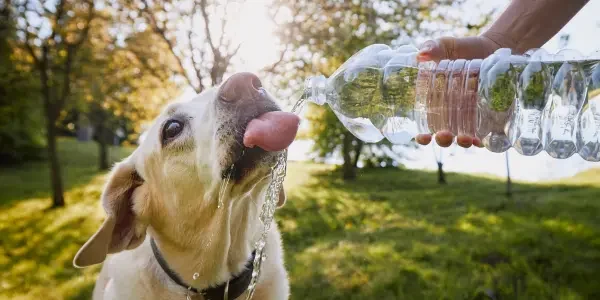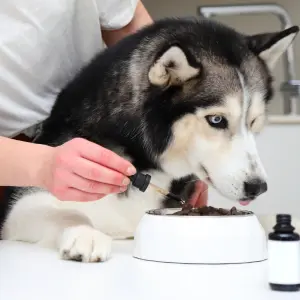Tap Water vs. Bottled Water for Pets
Water, the elixir of life, is equally vital for our cherished pets. As conscientious guardians of their well-being, many pet owners contemplate the choice between tap water and bottled water. Beyond the simplicity of a filled bowl, the water our pets consume is a critical factor in their health and vitality. This exploration seeks to navigate the tap water versus bottled water debate, unraveling the complexities that influence this decision and empowering pet owners to make choices aligned with the best interests of their furry companions.
Choosing the right water source for your pets is a decision that involves considering various factors. Understanding the nuances of each option can assist pet owners in making informed decisions.

Pros and Cons of Tap Water:
Pros:
- Accessibility: Tap water is readily available in most homes, ensuring a constant and convenient water supply for pets.
- Regulated Treatment: Municipal water supplies undergo treatment processes to meet safety standards, addressing concerns related to contaminants.
- Affordability: Tap water is generally more affordable than bottled water, making it a cost-effective choice for pet owners.
Cons:
- Variable Quality: The quality of tap water can vary depending on the region. Some areas may have water with a strong taste or odor, while others may face issues related to contaminants.
- Additives: Some regions add fluoride or chlorine to tap water, which, in excess, may not be ideal for pets.
- Potential for Contaminants: Despite treatment processes, tap water may still contain trace amounts of contaminants, although usually within safe limits.
Pros and Cons of Bottled Water:
Pros:
- Perceived Purity: Bottled water is often marketed as pure and clean, appealing to pet owners who prioritize water quality for their pets.
- Consistency: Bottled water provides a consistent quality, making it a reliable choice for pet owners who travel or live in areas with questionable tap water quality.
- Convenience: Bottled water is convenient for pet owners on the go, ensuring that pets have access to clean water even when away from home.
Cons:
- Environmental Impact: The production and disposal of plastic bottles contribute to environmental concerns. Using bottled water exclusively can generate plastic waste.
- Regulatory Variability: The regulations for bottled water quality may vary, and not all bottled water undergoes the same rigorous testing as tap water.
- Cost: Bottled water can be more expensive than tap water in the long run, especially for households with multiple pets.
Environmental Considerations:
The environmental impact of bottled water is a growing concern. Single-use plastic bottles contribute to pollution and environmental degradation. Pet owners can explore eco-friendly alternatives, such as reusable water bottles with built-in filters or investing in water filtration systems for tap water.
Regardless of whether you choose tap water or bottled water, ensuring the quality of the water is paramount. Regularly cleaning water bowls, using appropriate filtration systems if needed, and monitoring your pets’ water intake are crucial steps in maintaining their health.
Conclusion
The decision between tap water and bottled water ultimately depends on various factors, including your location, the quality of local tap water, and personal preferences. By staying informed about water quality, environmental considerations, and the specific needs of your pets, you can make a choice that aligns with both their health and your values.
By staying informed about local water quality and considering the ecological footprint, pet owners can make choices that align with their values and contribute to the health of their pets and the planet.



